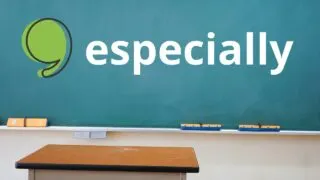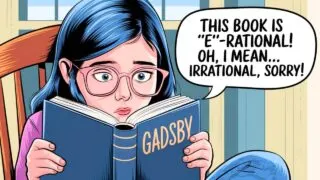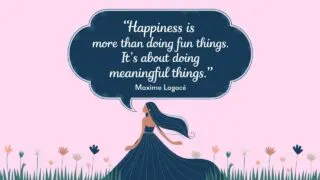Using a comma after a particular word is guided by punctuation rules that are fundamentally and arbitrarily based on syntax and stylistics. Put simply, a particular word does not necessarily determine the comma placement, but instead, it is either the sentence structure or the writing style. In our article today, we cover the comma-placement subtleties …
Search results for: especially
“Especially” appears quite a lot in texts, and a comma sometimes appears before it, but other times doesn’t. Why is this so? Are there rules that guide the pre-comma placement? If you’ve reached this site because of these queries sitting apprehensively at the back of your head, you certainly came to the right place. …
Are you tired of strength quotes that are meant for gym-obsessed twenty-somethings? Well, it’s time we had some words of power that speak to all generations – the ones who’ve seen bell-bottoms come and go (and come back again)! We all know that strength isn’t about bench presses or protein shakes. It’s about getting up …
Imagine writing an entire novel without using the letter ‘E.’ Sounds crazy, right? Well, that’s exactly what Ernest Vincent Wright set out to do in his 1939 masterpiece, Gadsby. This isn’t just a simple stunt—it’s a mind-boggling linguistic feat that leaves readers and writers alike scratching their heads in admiration (or disbelief!). Today, we will …
Europe is a melting pot of languages, each battling for its place in the daily lives of millions. The “language wars” quietly unfold across the continent, from bustling cities to quaint villages. While some countries have soared to multilingual greatness, others still struggle to catch up. What’s fascinating is that these battles aren’t fought with …
Remember when writing Christmas cards was as simple as scrawling “Merry Christmas” in your best handwriting? Oh, how times have changed! These days, finding just the right words can feel like quite the puzzle, especially as we’ve gathered a few more candles on our birthday cakes. But don’t fret my dear friends – we’re in …
Are you ready to add some pep to your step and fire up your motivation? We all know that staying disciplined can be challenging, especially with the unexpected curveballs that life brings. But here’s the good news: a little inspiration can go a long way in keeping us on track. So grab your water tumbler …
Life is a journey that comes with sparkly moments, and what better way to capture them than with beautiful words? We all need a little inspiration now and then, especially as we embrace the wisdom that comes with age. Hence we’ve gathered this collection of aesthetic quotes about life that will surely resonate with your …
Just when you thought English couldn’t get any more fun, the Oxford English Dictionary (OED) has decided to throw a few curveballs into the mix. This latest update brings words that are guaranteed to leave you smiling, scratching your head, or maybe both. These aren’t just any words—they’ve got personality, and they’re ready to take …









